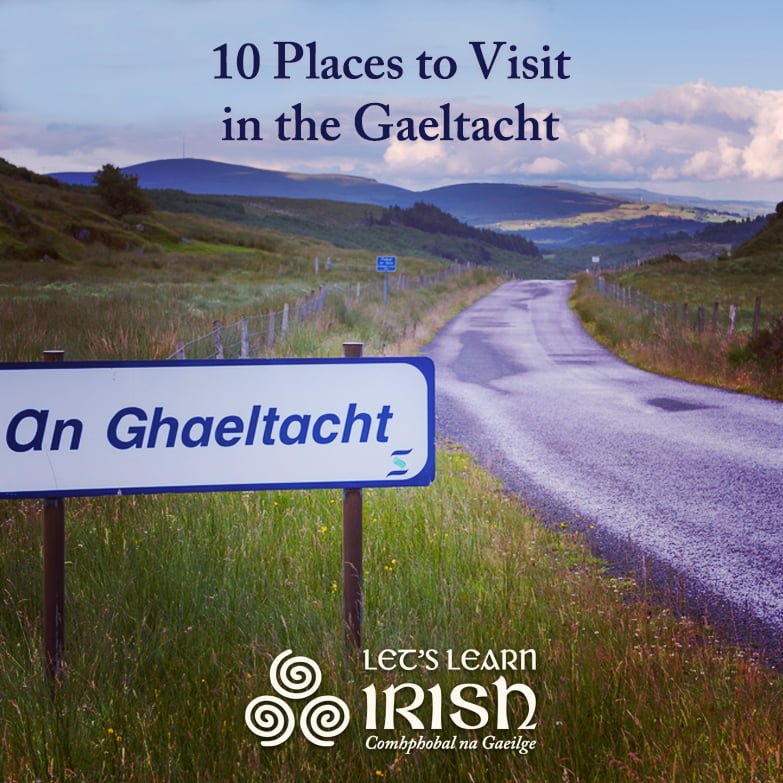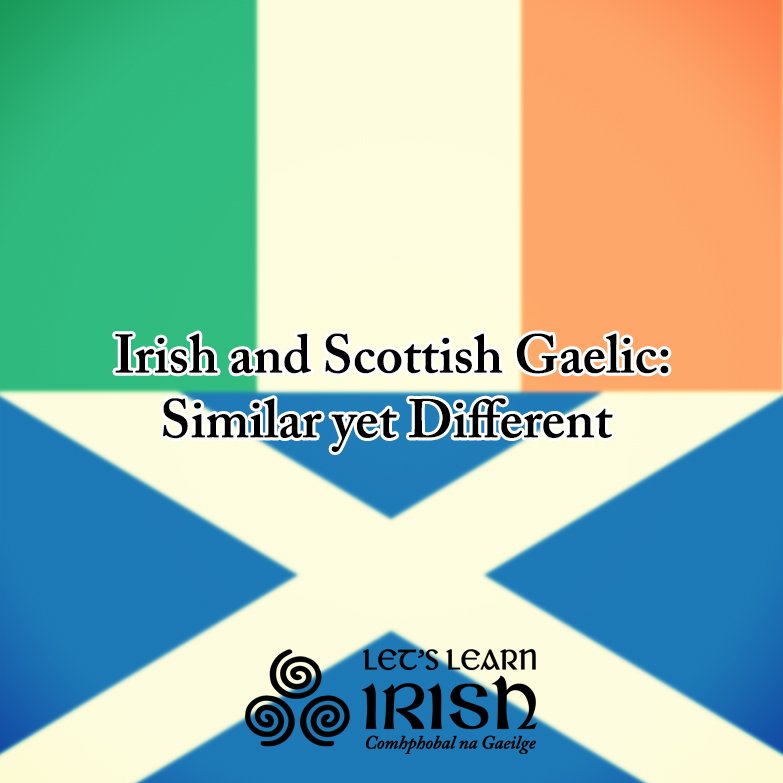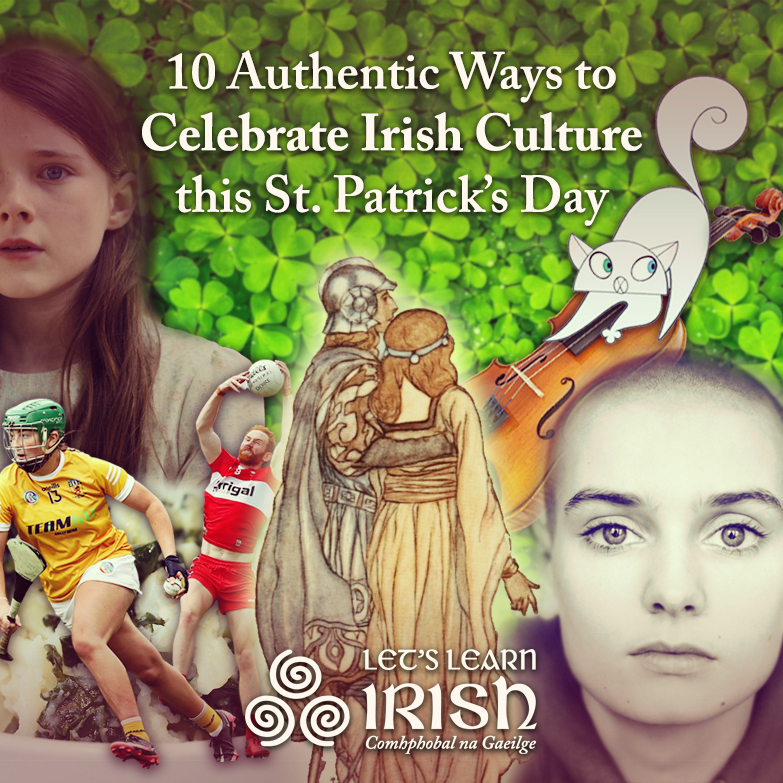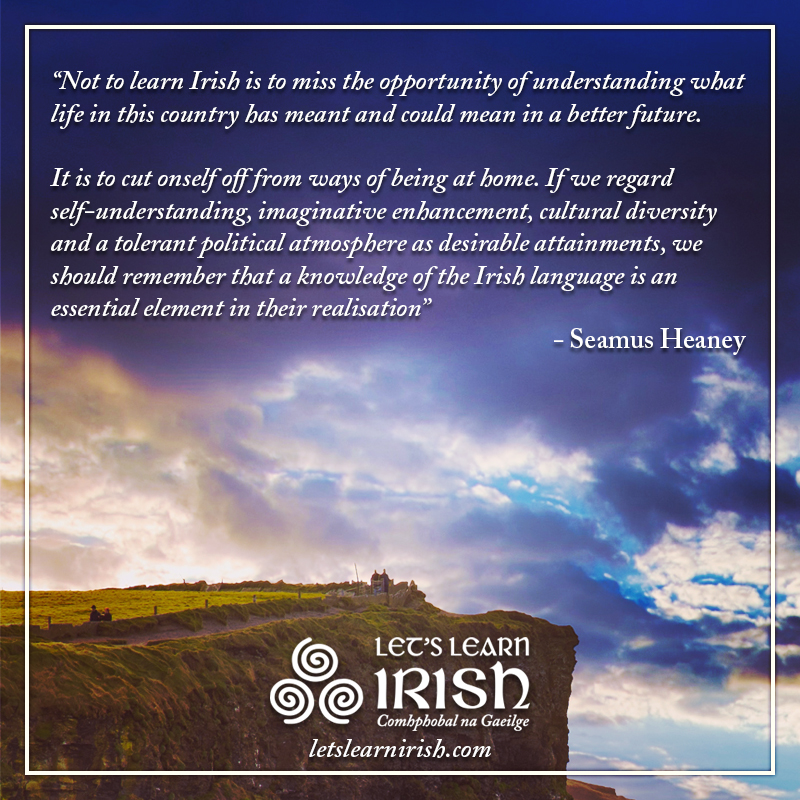Irish Contradictions
Internal contradictions are part of the human makeup, be they at a personal, a societal or a national level. Trying to apply a mathematical style logic to understand such contradictions is simply a waste of time. Such contradictions are nowhere more obvious than in the case of the Irish people and their relationship with the Irish language. It’s certainly a subject worth pondering during Seachtain na Gaeilge and the annual cultural celebrations that March brings…
Nationalist Pride?
 We tend to be very nationalistic when it comes to asserting our Irishness. We support our sports people, our actors or indeed, anyone who achieves fame, with a great sense of tribalism. We get a real bout of righteous indignation when the BBC (British Broadcasting Corporation) claim someone to be British if he/she is, in fact, Irish or somewhat Irish. Gaelic games run under the auspices of the GAA (Gaelic Athletic Association) are by far our most popular sporting activity with a club or branch in practically every parish in the country.
We tend to be very nationalistic when it comes to asserting our Irishness. We support our sports people, our actors or indeed, anyone who achieves fame, with a great sense of tribalism. We get a real bout of righteous indignation when the BBC (British Broadcasting Corporation) claim someone to be British if he/she is, in fact, Irish or somewhat Irish. Gaelic games run under the auspices of the GAA (Gaelic Athletic Association) are by far our most popular sporting activity with a club or branch in practically every parish in the country.
When it comes to the Irish language, however, we are in an entirely different game. We are aware of the many historical reasons for the decline of Irish, and we can rightly give reasons for why the language should be protected. The study of the language is compulsory for practically every school goer for the entirety of their school days. This means up to fourteen years of study for most pupils and about five percent of these study all of their other subjects through the medium of Irish. The language has a strong Constitutional support and is recognised as one of the official languages of the European Union. Yet its use in the community at local or national level is very weak.
Attitudes to the Irish language
 70% of us claim to be very positive towards the language and 40% of the population say that they can speak it, yet only 1.7% of the people of the Republic claim to actually speak it on a daily basis outside of the education system. A quotation ascribed to Oscar Wilde, amongst others, comes to mind; “An Irish gentleman is someone who can play the pipes but won’t”. We can easily replace the pipes with language. We are enthusiastic towards the language but not enthusiastic enough to use it regularly.
70% of us claim to be very positive towards the language and 40% of the population say that they can speak it, yet only 1.7% of the people of the Republic claim to actually speak it on a daily basis outside of the education system. A quotation ascribed to Oscar Wilde, amongst others, comes to mind; “An Irish gentleman is someone who can play the pipes but won’t”. We can easily replace the pipes with language. We are enthusiastic towards the language but not enthusiastic enough to use it regularly.
I was recently walking in a local park in Dublin with my two grandchildren. A friendly woman passed by, saluted and remarked ‘I see you’re teaching them Irish.’ I didn’t think that I was really as we were just talking about the flowers and the leaves and the dogs and the passing aeroplane and the exotic wild animals that could be lurking behind the hedges. The fact that our discussion was through Irish must have led our newfound friend to believe that I was on some kind of mission to gain scholastic advantage for my little pre-school charges. Nothing could have been further from my mind.
The Contradiction...
It would seem that the Irish language is seen as some kind of luxurious overcoat (a Sunday coat as they once said) that can be worn on state occasions or when we meet someone who is likely to be wearing a similar coat to our own, but it is not very practical for everyday use as we potter around with our daily chores. Its absence of practicality doesn’t mean that people haven’t an emotional attachment to it – a bit like Granny’s tea pot. You wouldn’t dare throw it out even if you never use it. A Nirvana may be ahead where Irish becomes the community language just as was anticipated in the early days of the Irish Free State and who would want to be caught wearing the wrong linguistic clothing in that scenario.  It is akin to an old neighbour, who has long since departed, expressing the opinion in his latter days that there is probably no God but that it would be no harm to have a bit of religion just in case.
It is akin to an old neighbour, who has long since departed, expressing the opinion in his latter days that there is probably no God but that it would be no harm to have a bit of religion just in case.
And yet, and yet, there is a substantial number of people, both in Ireland and abroad, for whom Irish is the only real language in which the thoughts of their inner soul can be properly expressed. It defines who they are and their perception of life. It enables the democracy of their ancestors and brings its own colour to the kaleidoscope that is world vision.
Join the online Irish community for cúrsaí, comhrá & ceardlanna, and follow along on social media @LetsLearnIrish – beidh fáilte romhat!





